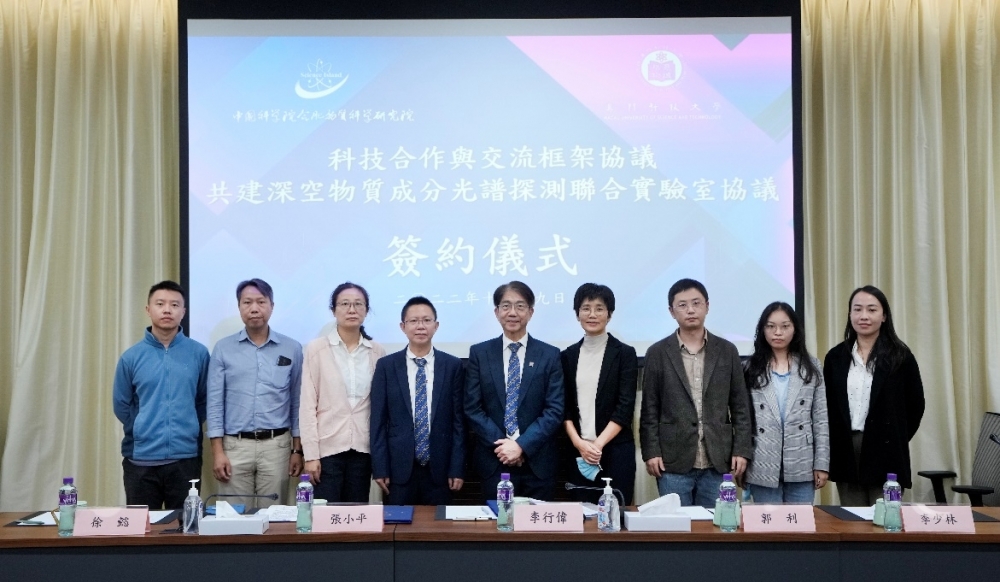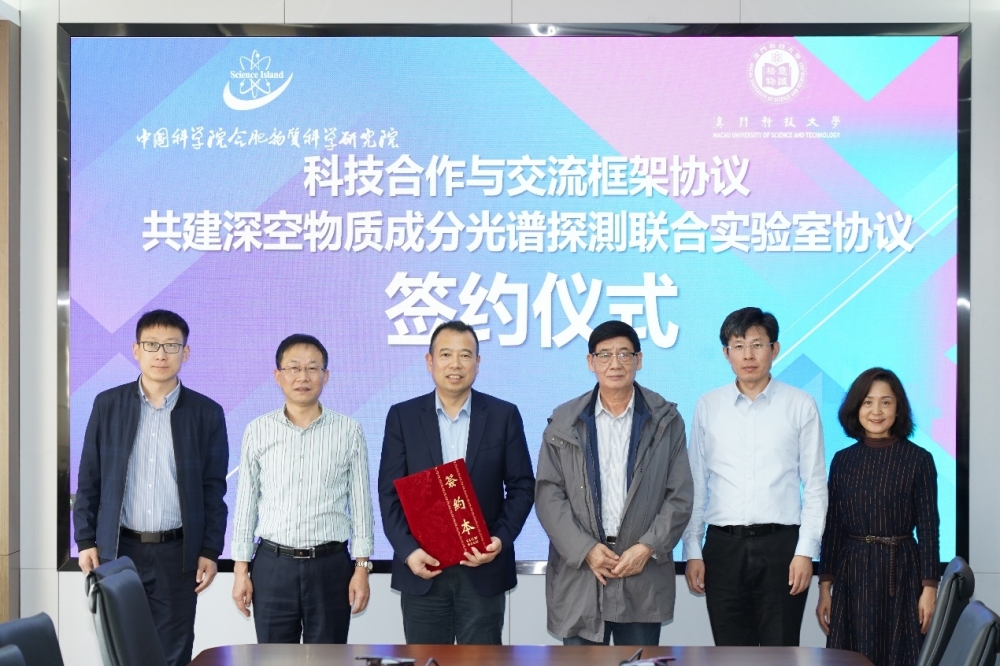The Macau University of Science and Technology (M.U.S.T.) establishes the Joint Laboratory for Spectroscopic Detection of Matter Composition in Deep Space with Hefei Institutes of Physical Science (HFIPS), officially announced at a scientific cooperation agreement signing ceremony held through hybrid format and joined by the highest executives of the two organizations on October 19.
Chair Professor Joseph Hun-wei LEE, Vice-Chancellor and President of Macau University of Science and Technology, and LIU Jianguo, President of HFIPS, addressed the signing delivering best wishes to their long-expected collaboration.

M.U.S.T. representatives at the signing ceremony

HFIPS representatives at the signing ceremony
According to the agreement, the Joint Lab was firstly established under a collaborative framework but, on a practical level, it serves as concrete support for long and stable collaboration based on which proceeding on science, technology, and engineering for deep space detection could be facilitated in a long-term manner.
Besides the good starting, both organizations wanted a well-continued connection, hence the respective senior executives had a deep discussion on the Joint Lab’s administration to form, with consensus, the first management committee who appointed Professor LIU Wenqing, a member of the Chinese Academy of Engineering, and Chair Professor ZHANG Keke, Director of the State Key Laboratory of Lunar and Planetary Sciences as the lab directors.
The Joint Lab was set up as an outstretch of a well-ongoing collaboration that M.U.S.T. and HFIPS are working closely in manufacturing water molecular detector aboard the Leaper of Chang’e 7, a planned robotic Chinese lunar exploration mission expected to be launched to target the lunar south pole. The project kicked off last May in Hefei where HFIPS who leads the project is based.
“Like other collaborations elsewhere”, according to LIU Jianguo, President of HFIPS, “the shared scientific interest brings us to the agreement that joint activities will be carried out to promote bilateral academic exchange, sci & tech collaboration, and talent training in a wide range from deep space detection to environmental science, medical research to artificial intelligence,” added LIU.
M.U.S.T. has rapidly developed into the largest multi-disciplinary university in Macao since its founding in 2000 and is ranked among the Top 20 Universities in Greater China. The State Key Laboratory of Lunar and Planetary Sciences was built by the Ministry of Science and Technology of China and is based at M.U.S.T. It represents the first State Key Laboratory specializing in the field of astronomy and planetary sciences in China. The key lab started to participate, with its scientific foundation in planetary science, in the China Lunar Exploration Project in 2005, involving data analysis and scientific research.
HFIPS was one of the largest CAS institutes based on Science Island. With years of development, HFIPS has advanced a cross-disciplinary study field in which arrays of advanced detection instruments are manufactured on cutting-edge spectroscopic technology. Based on its expertise in manufacturing instruments for multi-applications, HFIPS has completed many development tasks for observational payloads aboard the satellites.





